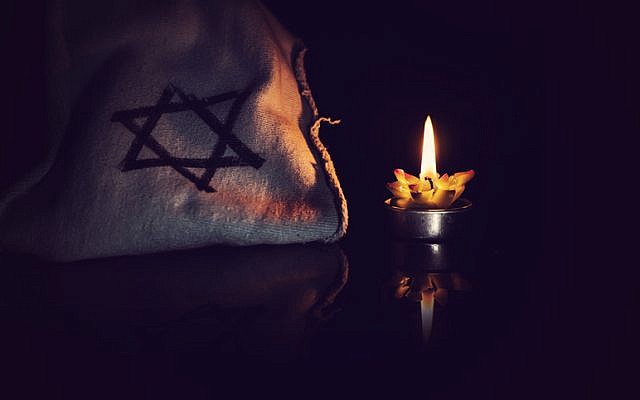Uncle Jacques and the end of Jewish life in Europe
'LET me tell you about antisemitism in Europe and my Uncle Jacques'.
LET me tell you about antisemitism in Europe and my Uncle Jacques.
Born in Warsaw just as the 19th century became the 20th, he joined the French Foreign Legion as a teenager. As one does.
But first let me share a joke.
What’s the definition of a Jewish telegram? “Start worrying. Details to follow”.
Alright. I apologise. It’s a very old joke. But it came to mind last week when I read two headlines on the same day about the rise of antisemitism in Europe.
In TIME magazine’s latest issue (01/07) the “start worrying” headline was “The Hatred Stalking Europe”.
Among the “details that followed”, 89 per cent of the European Jews surveyed said antisemitism was “rife and getting worse”, and 38 per cent were thinking of emigrating “because they no longer feel safe as Jews”.
The second headline – “Judenrein Europe” – introduced an article by demographer and futurist, Joel Kotkin, in the Jewish online daily Tablet (26/06).
And the “details that followed” were that “… as Jews continue fleeing the continent, by the end of this century all that’s left will be a Jewish graveyard”.
The process is “inexorable” and “inescapable”.
As Kotkin sees it, Europe is fulfilling Hitler’s mission, “legally and largely unconsciously” in Germany, England, France, Hungary and elsewhere where European antisemitism in all its variations – far right, left wing, and Islamist – are multiplying. And in some cases coalescing.
Too alarmist?
Kotkin asks us to consider that in 1920 Europe was home to over half of world Jewry and that today barely 10 per cent live there. And he argues that the Holocaust’s devastation, on its own, is not sufficient to explain the diminished 1.5 million Jews left.
History, politics, antisemitism, and migration patterns have created a perfect storm.
In the next two generations, at most three, Jewish history will witness the end of millennia of vibrant, creative, and tragic Diaspora life in Europe.
Doomsday scenarios, or realistic projections?
Any reader familiar with this AJN column knows that I’m a committed Tetlockist, and American social scientist Phillip Tetlock is my Rebbe.
After 20 years of research he concluded that a dart-throwing chimpanzee had a better chance at predictions than the vast majority of pundits, commentators, academics and columnists. This one included.
That said, I think that Kotkin makes a compelling case. But ultimately that’s not because of the statistics or the historical evidence he offers.
For me it’s personal. It happens to be the same case which my father made in 1946 to Uncle Jacques, his younger brother.
To his great joy, a year after the war ended, my father had just discovered that Jacques, alone among a large family that had perished in Poland and Germany, had somehow survived in France. With his wife and three children.
To understand how, let’s rewind to Warsaw just before World War I.
Yankev Lipskier, then 16 and a reluctant yeshivah student, had a row with my grandfather Szymon Lipskier, an Aleksander Chassid, Warsaw wine merchant, and stern patriarch.
To allow some cooling-off time, Yankev was sent away to distant relatives in France.
When World War I erupted some two years later, the rebellious Yankev, by this time Jacques, joined the Foreign Legion.
All through the 1920s the Legion fought the Berbers in Northern Africa. Jaques was seriously wounded, decorated, and honourably discharged. When the Nazis occupied France in World War II a small network of Jacques’ former Legionnaires hid him and his family in secret locations across France.
They survived. Jacques was deeply grateful to his former comrades.
So as soon as my father knew he was alive, he pleaded with him to emigrate to Australia.
He wrote: “Do not stay in France. There is no future for you and your children there. And there is no future for the Jews in Europe. It has become a ‘Beiss Oilem’ – a cemetery – for our people.”
For a while it seemed as if Jacques agreed.
In the event, however, he and his family remained in France. They prospered. There were grandchildren and great-grandchildren. In Paris. In Cannes. In Grenoble. And even today, despite the growing antisemitism, French Jewry remains the third largest Jewish community after Israel and the US.
So until recently it seemed that my father had been wrong about Europe and the Jews. For a long time I had thought that while his pessimism in the Holocaust’s immediate aftermath was understandable, it had been too overwrought.
Not so, apparently. If in 2019 “Judenrein Europe” has become just another headline, and it has, my father was merely a few decades premature.
Sam Lipski is chief executive of the Pratt Foundation and a former editor of The AJN.


comments